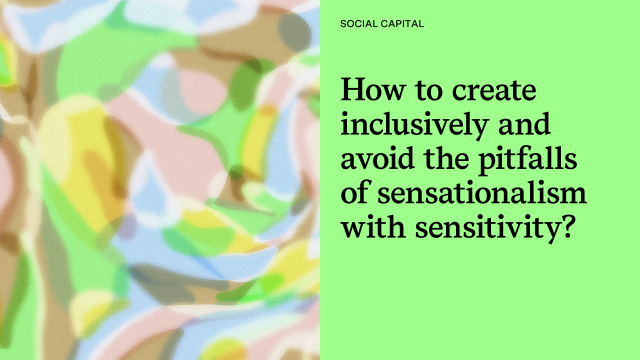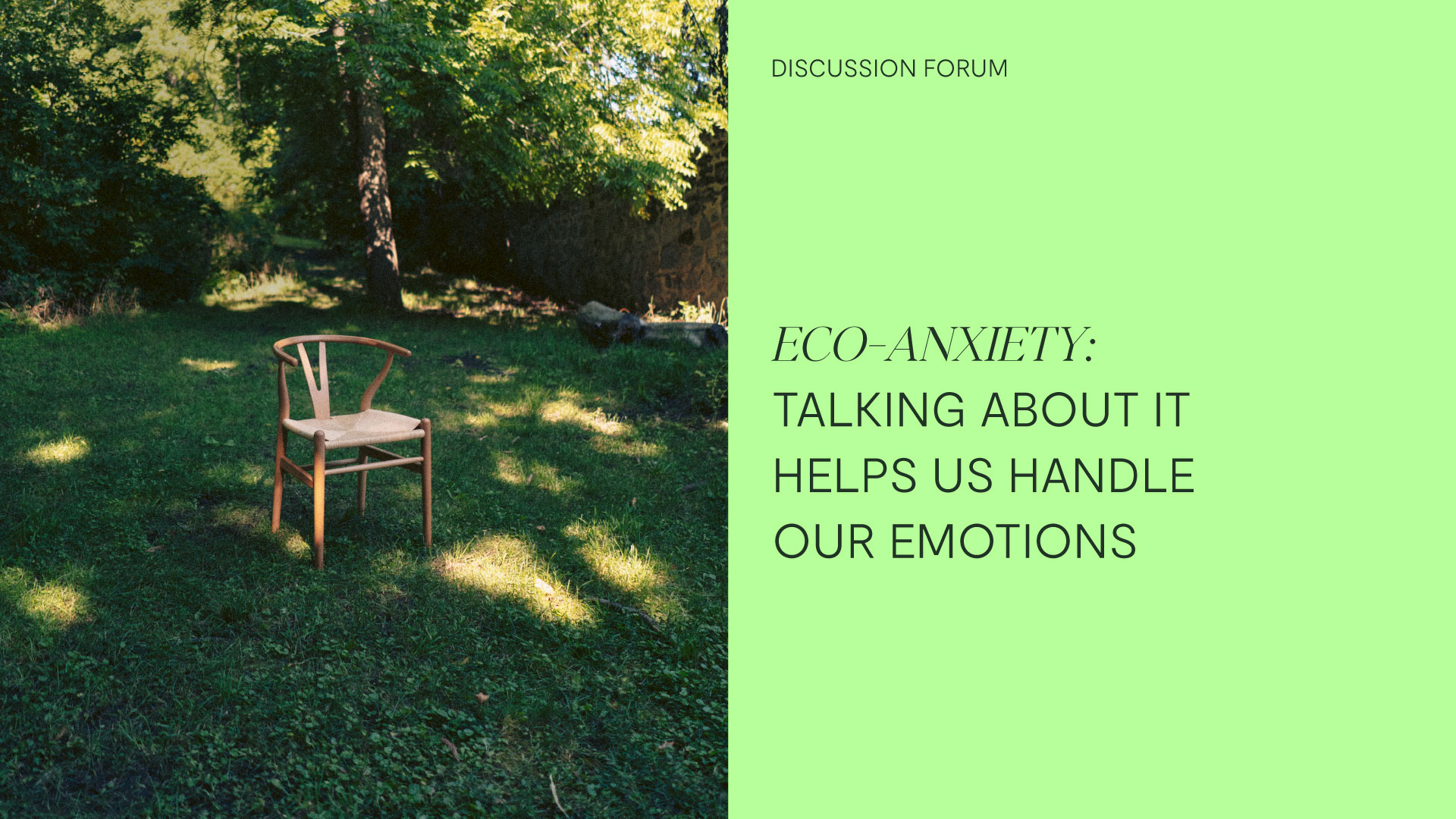
How to create inclusively and avoid the pitfalls of sensationalism with sensitivity?

What is your relationship to the environment and the natural world? What emotions do you feel when you think about the subject? Is it harder for you to feel connected to the people around you? These were the questions asked and answered by our team when Isabelle Béliveau, founder and CEO of Éco-motion, came to pay us a visit.
Éco-motion is an organization that helps people and companies adapt to the social turmoil that has arisen due to climate change.
Let’s face it—more and more people are becoming so stressed about our current environmental situation they’re developing signs of eco-anxiety. Women under the age of 35 and young adults, which make up the majority of our team, are among the groups experiencing the most distress.
So what is eco-anxiety exactly? It’s feeling preoccupied or even distressed about a future that has become unpredictable due to climate change. It’s the mix of fear and apprehension experienced by someone once they become aware of the threat.
For our team, Isabelle’s visit was an opportunity to start a discussion about this jumbled mix of emotions. For example, Béatrice, who grew up in fertile green surroundings, said she feels particularly affected by the changes she’s seeing in the environment. On the other hand, Mélodie, who has lived her whole life in a concrete urban environment, said she has a hard time feeling connected to nature. Both of these reactions are completely normal.
Every person reacts in a different way, but it’s important to attain a certain equilibrium in your response. As Isabelle said, there is a connection between psychological crises and the climate crisis, in that there is a social silence that exists on both fronts.
The problems related to climate change seem so huge no one knows how to react. We can’t even talk about it. We’re so overwhelmed!
Nevertheless, it’s very important that we put a name to our feelings about the situation so that we can find ways to help ourselves cope.
During her visit, Isabelle talked about the lifeboat metaphor, which entails three distinct emotional states. For each state, solutions are offered to alleviate the emotions experienced.
One state of emotional hypervigilance is when you feel as though you are swimming against the tide. The entire weight of the world seems to be resting on your shoulders and no matter what you do, it’s never enough.
In this state, it’s common to feel anger or even guilt. However, as Isabelle stated, “you’re just burning yourself out to try and stop the planet from burning” and this isn’t a desirable emotional response. Once you realize that you’re in this state, you need to try and channel your energies into possible solutions that let you feel your best. Are you good at outreach activities? If so, why not put your skills to use by explaining to friends and family that every action counts? Getting involved is a way of making a difference.
Emotional hypoactivation can be exemplified by someone who’s just drifting with the tide. In this state, a person might be feeling paralysis, disengagement, and even cynicism.
To try and unpack these emotions, a good option is to become aware of your own ability to take action, to choose your information sources well, and focus on finding solutions.
Being in the lifeboat means finding a balance between acting and resting. It’s also the kind of emotional equilibrium we’re looking to achieve. Isabelle explained that in this state, people are able to take action based on their own values and limitations. We achieve equilibrium when we succeed at sharing responsibility for taking action with the various stakeholders involved.
Follow Eco-Motion on social:
1. Instagram
2. Facebook
3. LinkedIn